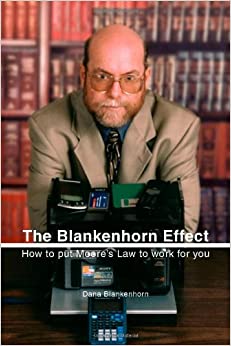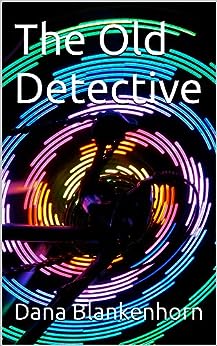 This is a take that’s going to be surprisingly unpopular, despite being obvious.
This is a take that’s going to be surprisingly unpopular, despite being obvious.
E-books are better than paper books.
They cost nothing to deliver. They’re cheaper than paper books. They don’t kill trees. They’re lighter and easier to read.
They can also be updated, and that’s important.
I got a call recently from a company wanting to reprint my 2001 book on tech history, which I called (unfortunately) The Blankenhorn Effect. I later re-issued it twice, each time under a different title, as I came to understand that tech changes too fast for books to keep up with. My next project will be another update, tentatively titled Moore’s Lore 2024: More After Moore.
What’s the advantage of a paper book? It’s permanent. Its sale process offers serendipity. There’s nothing like the smell and feel of a bookshop, or a library. You can make the same arguments for LPs over a streaming service.
There’s one more argument that book lovers use. They hate Amazon.Com.
I get it. Amazon, and its Kindle, rule the e-book market. It’s the format of choice. It holds a market monopoly. This has made Amazon lazy. The whole Kindle business is now a pimple on the butt of Amazon.Com, which was founded almost 30 years ago to sell paper books.
 But there are thousands of writers who now make their living selling their e-books on Amazon. I know the criticism. The best-sellers are serials, trite, redundant, more like TV episodes than movies. To that I say, so what? Writers are getting paid. People are being entertained by reading. It’s a huge market that wouldn’t exist in print, due to printing and marketing costs.
But there are thousands of writers who now make their living selling their e-books on Amazon. I know the criticism. The best-sellers are serials, trite, redundant, more like TV episodes than movies. To that I say, so what? Writers are getting paid. People are being entertained by reading. It’s a huge market that wouldn’t exist in print, due to printing and marketing costs.
There are valid criticisms. Amazon’s monopoly should be broken. Other companies should be allowed to make compatible e-book readers, and publishers should be able to create competing Kindle marketplaces. This doesn’t threaten Amazon’s viability. It might make it more money as a result.
Now think of the advantages of e-books, just in education. States can’t stop the distribution of e-books. Parents can get their students readers like the Amazon Fire tablet for under $50 each, dramatically lightening their backpack load. Other forms of content can be integrated on the Fire, and generative AI supports multiple content formats. If you’re worried about AI replacing book authors, opening the Kindle format has nothing to do with it.
It's time to have all these discussions. The antitrust discussion. The education discussion. It’s time for the Kindle format to be opened and fulfill its potential.
But on the central point of this discussion, one thing is clear.
E-books are better.











Just realized after hitting publish.
I have issued the Moore’s Lore book as a Kindle 3 times. I forgot about the 2019 edition
https://www.amazon.com/Technologys-Big-Bang-Yesterday-Tomorrow-ebook/dp/B0829C7XSF/
Hey Dana,
David Vitoff here. Just met up with a few people who were part of our class with Mrs. Schaefer ninth grade. Just enjoyed a three day series of events celebrating the 50th anniversary of our MHS class of 73! Text or email me, so we can get in touch. What really moved me to reach out to you? I just read a tribute to Lou Evans from his sister on his obituary page, he died in 2013.
We all got a commemorative book that sadly had to include a list of those who passed, many of whom I knew about having been part of a Facebook page for the couple weeks leading up to this weekend‘s events. But I haven’t heard about Lou Evans. I actually hoped some of our journalistic co-conspirators would perhapss be there. Alas, none except Peter Hanson.
This sister tribute herein really touched me:
https://www.legacy.com/us/obituaries/newsday/name/louis-evans-obituary?id=5190468
Best to Jennie – hope all is well with all
Yours,
David
618/972-5850
Oops – I think this is public. My bad. Perhaps this will spark some observations and perspective from Dana to all. DV